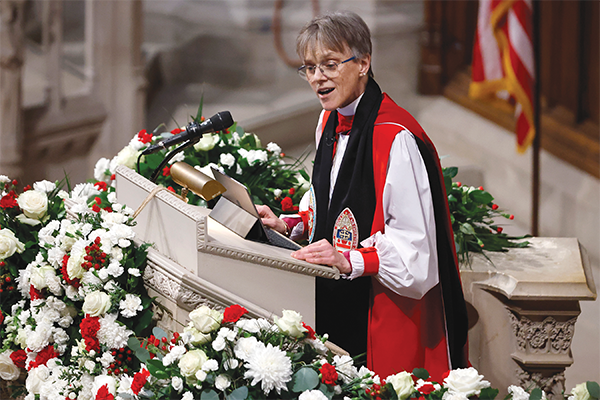THE WORD “SERMON,” like “lecture,” is an ambiguous one: both a genre of speech and a shorthand for our worst ways of speaking to one another. Outside of a religious context (and to be honest, sometimes even inside one), who wants to be preached at?
Those connotations of arrogance and superiority likely come from authentic experience. But they also miss something important about the sermon as a genre: its foundation in humility, in the practices of reading, reflecting on, and speaking on someone else’s text.
In his 1990 farewell sermon as pastor of Concord Baptist Church in New York, Gardner C. Taylor, one of the great preachers of the civil rights era, asked for forgiveness “if I ever tried to make the Word of God mean what I wanted it to mean.” Sermons (in Christian tradition, as well as in my Jewish tradition) are public acts of commentary. And, as Taylor reminds us, serious commentary is a morally consequential act, because it requires putting one’s own priorities and intentions second to those of the text, an act which is always, at least a little, selfless. At the heart of a sermon is the tension between what the text seems to say and what the preacher wants to say with the text.
When I read or listen to a sermon — even one as politically memorable as Episcopal Bishop Mariann Edgar Budde’s sermon at the national prayer service following President Donald Trump’s inauguration in January 2025 — I try to keep that basic question in mind: What text is she preaching on?
Read the Full Article

